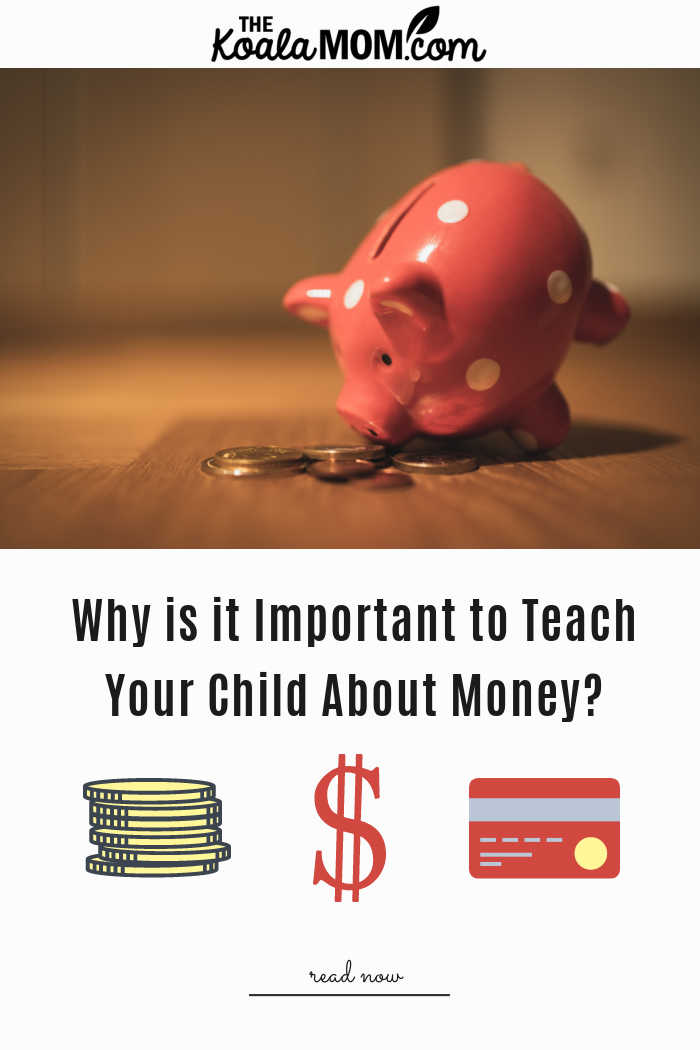Among the things you may think about teaching your child as they grow up, you will want to include money. Considering the importance of financial stability in a person’s ability to survive and be happy, it could be deemed as crucial that a child is given as much information as possible as they grow, which will allow them to make better decisions with their money. Even from a young age, your child may be able to learn about the positive and negative aspects of the decisions they make.

I remember my parents opening bank accounts for my brothers and I when we were quite young. That was back in the day when we still got bank books—I had a little pink bank book and my brothers had little blue bank books. Each month, Mom would take us to the bank and split the government child subsidy account between our accounts. We could look in our updated books to see how much money we had, but that money was for saving or investing. Even just $20 or $30 a month added up when it was allowed to accumulate over several years.
To help your child to navigate their way into adult life, you may want to think about the ways you could help. Even those on low incomes may be able to reap the benefits of a junior ISA, which will allow you to save money, as and when it is feasible to do so, in an account that the child will only be able to access when they reach a certain age. By putting a bit of money into an ISA, RESP or other investment when children are very young, the money has time to earn interest over the next few years.
This investment could grant them access to things that, without this money, may take a great deal of time to achieve. Once a child reaches adulthood, they may have certain aspirations, such as owning property or a vehicle or going to college, which that money could greatly aid with. Alongside this, you can then teach your child about the money being saved, how the interest helps it to grow, and why saving, rather than spending, can be beneficial.
Talking to your children about their money and involving them with the investment can help them see the long-term goals as well. I remember my parents’ investment advisor coming to our home once or twice a year and sitting down with my parents to discuss their investments. She’d also help my parents explain investing to my brothers and I, and then they’d give us some options for where we wanted to invest our money. We didn’t have total control over the money, but just having some say in the process helped us learn about it.

Another idea can be to help your child to curb any impulses they might have. While some frivolous purchases can be acceptable, especially if they have been planned in advance, spending too much money on unnecessary goods or items could see them unable to make ends meet. It was estimated in 2018 that the average person could spend around $5400 every single year on impulsive purchases. One of the biggest culprits in this was in relation to food.
Therefore, teaching your child about the cost of groceries and home cooking, versus convenience food from a restaurant or delivery, could help them to have more money in their pocket at the end of the month. My teen likes buying candy when we’re at the store, as she often has babysitting money or other change in her wallet. At the same time, she also talks about wanting to get herself an iPod and other big purchases. I try to remind her that if she buys the candy, it will take her longer to save money for the iPod. Sometimes, the candy wins; sometimes the iPod wins.
A failure to curb these impulses, or to learn how to budget, can lead to debt which, if left unchecked, can greatly impact your child’s life. While there are the financial implications to consider, as well as those that affect one’s lifestyle, it is also important to consider how debt can affect a person’s mental health. Teaching your child how to manage the money they gain each month, even with pocket money at a young age, could help them to be able to successfully pay their bills, and even have money left for any unexpected expense that might occur, when they are independent from you.
When you think about all of the consequences that could occur if you didn’t properly manage the finances for your family, it can soon become apparent that your child could greatly benefit from this same information as they grow.
What do you do to teach your child about money?

No Responses Yet